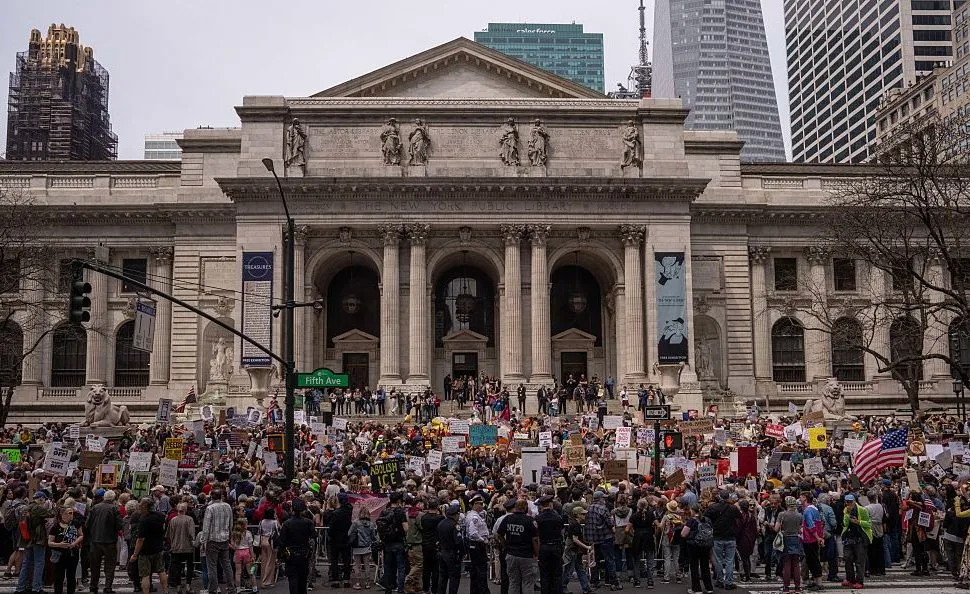Visual artist Dread Scott, playwright Lynn Nottage, and dozens of other leading cultural luminaries have invited America’s arts community to join them this November for a weekend of creative demonstrations intended to protest what they warn is rising authoritarianism under the Trump administration.
The project, called Fall of Freedom, will take place from November 21–22, and is described in a mission statement as a series of actions “independently organized, yet united by the shared value of standing against fascism.” Organizers provided purposefully loose guidelines for where and how to participate. The website suggests museums, classrooms, galleries, or comedy clubs—“anywhere where your community gathers”—for events such as storefront readings, pop-up performances, or exhibitions. A bookstore, for example, could highlight banned books or host a workshop on censorship.
“No effort is too big or too small, whether you’re running a 10,000 seat venue or a small high school library,” the statement says. The nationwide “wave of creative resistance” intends to “celebrate the experiences, cultures and identities that shape the fabric of our nation.”
According to the New York Times, the Institute of Contemporary Art, Los Angeles will host a “Wear Your Rights” silk-screening workshop on November 21, while New York’s Leslie-Lohman Museum of Art is set to turn one of its galleries into a library of books dedicated to the role queer art activism continues to play in the fight against censorship and discrimination. Participants also include visual artists Marilyn Minter and Robert Longo, musicians Daniel Bejar (frontman of the band Destroyer) and Amanda Palmer, filmmakers Ava DuVernay and Michael Moore, and curator Laura Raicovich, who resigned from her role as director of the Queens Museum in 2018, citing “problematic events that unfolded in the aftermath of Trump’s first election.”
The Trump administration has intervened repeatedly in the operations of prominent cultural institutions across the country, with the expressed purpose of realigning the values of his political party. The administration has demanded oversight of the Smithsonian, including the power to make changes to the programming of its museums. The White House has claimed that the institution’s programming has skewed too far from “the greatness of our nation or the millions of Americans who have contributed to its progress.” The Kennedy Center board was also purged of Biden appointees and Trump additionally fired the center’s president and installed himself as chairman.
Artists had already begun taking action in response to the administration’s perceived overreach: Amy Sherald canceled her exhibition “American Sublime” at the Smithsonian’s National Portrait Gallery in July after the museum raised concerns over exhibiting her painting of a Black transgender Statue of Liberty. “It’s clear that institutional fear shaped by a broader climate of political hostility toward trans lives played a role,” Sherald later said of the situation.
“Threats to free expression are rising,” the Fall of Freedom organizers said. “Dissent is being criminalized. Institutions and media have been recast as mouthpieces of propaganda.”
